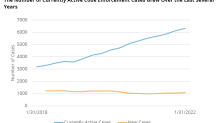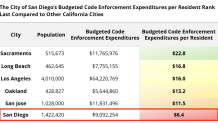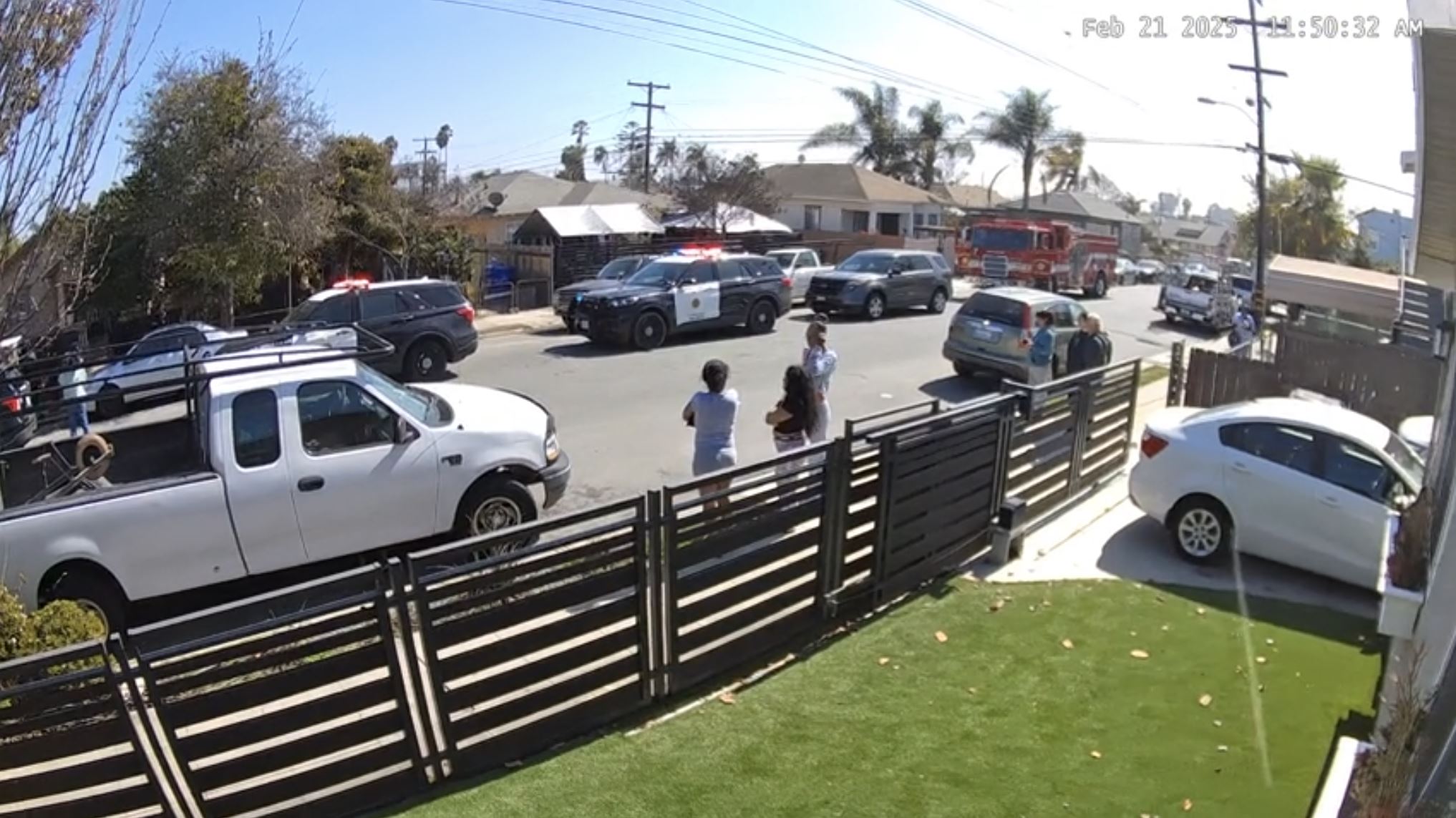A newly released city audit details staffing woes and case mismanagement, reports NBC 7’s Alexis Rivas.
Exposed live wires, leaking sewage and dangerously unstable structures. These are the kinds of serious complaints that San Diego’s Code Enforcement Division is called upon to investigate, but a recent audit of the division shows the city responded late to nearly half of those Priority 1 complaints, and some just got lost.
The goal for the division is to investigate 90% of those types of cases within one business day. During the 2021 fiscal year, that only happened 55% of the time. That performance is lower than each of the previous two years.

The audit gave six examples of when Code Enforcement didn’t meet its standards. One of those included a complaint filed against a condo building in October of 2021 for “Exterior elevated elements posing an immediate threat to occupants.” An initial inspection by Code Enforcement didn’t happen until April of 2022.
Get top local stories in San Diego delivered to you every morning. Sign up for NBC San Diego's News Headlines newsletter.
NBC 7 Investigates visited that building on Dandridge Lane, in the Redwood Village neighborhood. We spoke with Vincent Aguilar, who told us about issues at the complex around his girlfriend’s unit there.
"Problems here never get fixed in a timely manner," Aguilar told us. "I’m always, head on a swivel, checking the staircases for safety. Even the balconies. Checking the side of the building for leakage, for mold, for cracks. Safety is the most important thing. You shouldn’t have to worry about your building, your infrastructure.”
It seems the city agrees. The Audit Committee for San Diego’s City Council reviewed the findings of the report on Wednesday. Councilman Stephen Whitburn sits on the committee.
Local
“Calls from constituents around code enforcement matters are among the most frequent calls that we get. It’s very important to neighborhoods, business districts and all our communities,” Whitburn said.
The problem only appears to be getting worse. In the graph below, you can see the number of new cases has been consistent since 2018, but the number of active cases has steadily risen. In the words of the audit, “...a perpetually growing backlog of cases…”

NBC 7 Investigates spoke with Leslie Sennett, Deputy Director of the Code Enforcement Division.
“It's a tremendous concern,” Sennett told us. “That’s one of the reasons we requested the additional positions because that is a concern.”
Sennett says a shortage of staff, combined with COVID accommodations, drove the delays and backlog.
“I think that staffing has had a lot to do with that,” Sennett said. “We’re working towards improving our staffing levels. This new budget adds a lot of really needed positions which will help us be more responsive.”
The audit also found San Diego’s Code Enforcement Division is smaller in both size and budget than other comparable California cities.

The audit recommends ten actions, which Sennett says the division plans to adopt.
The newly signed city budget increases the department’s expenditures from roughly $9 million to just over $11 million. The added positions will help cover the division’s new responsibilities, like enforcement of short-term rentals and sidewalk vendors.
Other than hiring more workers, the city will bring back a tool called voluntary compliance. This allows the city to send a letter to the parties in a low-level complaint instead of an initial inspection. That allows the city to focus on responding to higher-priority violations. For San Diegans like Aguilar, action can’t come soon enough.
"Maybe it’s not you right now," Aguilar said. "But it could be you. Put yourself in our shoes. If it was your place you’d want them to come out right away."
NBC 7 made contact with the property manager at the condo building that was mentioned in the audit. That person told us the balconies are not safe, which is why they had to shut them down.
The audit also found problems with the division’s internal data, stating, “We found that the Development Services Department’s methodology to calculate Code Enforcement’s response time goal metrics is incomplete and overstates actual performance by 13 to 28 percentage points.” The report also points out there is little to ensure that data entered by employees is accurate in the first place – something the auditor described as paramount for the city to appropriately staff and budget the department.



